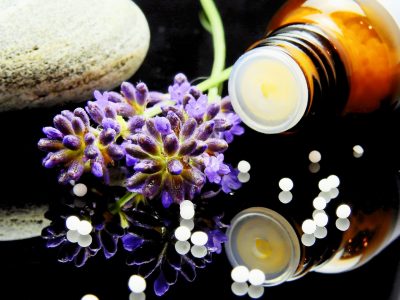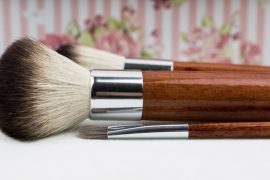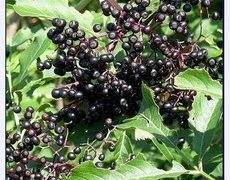Sinus and nasal irrigation is a tremendous help to anyone with sinusitis, nasal congestion allergies and exposure to dust. Whether you use a neti pot , a sinus rinse kit, or a sinupulse or other device, the simple process of flushing the nasal cavity and sinuses with saline and purified water can offer great relief for many health conditions.
The practice has become so common, that many doctors frequently recommend a neti pot for individuals with allergies, colds and sinus infections. It is so effective that a group of family practice physicians prescribe saline nasal irrigation as an adjunctive therapy for numerous health conditions: chronic rhinosinusitis (91%), acute bacterial rhinosinusitis (67%), seasonal allergic rhinitis (66%), viral upper respiratory infection (59%), other allergic rhinitis (48%), irritant-based congestion (48%), and rhinitis of pregnancy (17%).
Benefits of Nasal Rinse
According to Melissa Pynnonen, M.D. , co-director of the Michigan Sinus Center and assistant professor in the U-M Department of Otolaryngology, “Nasal irrigation can be considered a first-line treatment for common nasal and sinus symptoms. It’s often more effective than medications.”
Congestion Relief-Rinsing with a warm solution of saline and purified water will help to flush excess mucous, allergens and dust.
Allergy Relief-In a study of 211 patients from the University of California, San Diego, patients saw significant improvement in 23 of the 30 nasal symptoms they notated.
Colds– Rinsing the nasal cavity will help to thin mucus, so that your nose drains more easily.
Sinus Infections-Flushing the nasal and sinus cavities will thin mucous and relieve pressure commonly experienced with sinus infections. A study published in the Canadian Medical Association Journal with participants who used nasal irrigation to treat chronic or recurrent sinusitis saw more symptom improvement over a six month period than those who did not use this method.
Safe during pregnancy-There are numerous medications women can’t or shouldn’t take while pregnant. Saline irrigation is safe during pregnancy and can help relieve cold, sinus and allergy symptoms.
Snoring– One cause of snoring is congestion. Using a saline rinse may help to relieve your congestion, allowing for a better night’s sleep.
Nose Bleeds-A common problem sometimes caused by dry air in your home, can be relieved by moistening the nasal passages through nasal irrigation.
Cautions
Always use distilled or boiled and cooled water for a nasal sinus rinse. Believe it or not people have died from using tap water for their rinse. Two people died in Louisiana, lab tests on their home plumbing came back positive for the amoeba Naegleria fowleri.
Do not share your neti pot or other nasal sinus rinse equipment with others.
Every time you use a device be sure to clean it thoroughly to remove any germs.
Be sure that your device has time to completely dry our between uses.

What is Sinusitis?
Sinusitis is the medical term for most sinus infections, describing inflammation of the naval cavities and sinuses. This inflammation can make it difficult to breathe, but much worse is the pain and pressure that are the primary symptoms of sinus infection. This inflammation can be caused by an infection with a viral, bacterial, allergic, or fungal cause. For this reason, sinusitis can be contagious.

When to See the Doctor
Remember to call your doctor if your symptoms persist or if you have a fever over 100.5. Signs of a serious infection that need urgent care are:
Pain or swelling around your eyes
A swollen forehead
Severe headache
Confusion
Double vision
Vision abnormalities
Stiff neck
Shortness of breath

Homeopathic remedies
Homeopathic remedies are easily found at natural food stores, online and through your local homeopath. Check the remedies below that matches your symptoms.
Arsenicum album-Use if the discharge is thin, watery, and burning; the condition worsens with exposure to open air, or if there is a tendency to feel chilly, a desire for warm drinks and accompanied by a sense of restlessness and anxiety.
Hepar sulph-Use if nasal discharge is thick, yellow-green, foul smelling discharge. Nose is blocked, sinusues and facial bones sensitive to touch. Nose is red, inflamed, swollen with burning pain. Loss of smell. Irritable, chilly. Feel better warm and wrapped up.
Hydrastis-Use with watery acrid discharge that becomes thick, foul smelling and yellow. Nasal passages and nose feel raw, burning. Constant nose blowing. Sever frontal sinus headache and post nasal drip. Warm air nose is blocked up, cool open air allows nasal discharge and relieves sinus headache.
Kali bichromium– Use if there is a feeling of pressure at the root of the nose and either a foul smell or loss of smell; if the frontal sinuses are chronically stuffy with constant post nasal drip and/ or nasal obstruction, or if the symptoms are relieved by warm compresses and worsen from exposure to cold damp air.
Mercurius iodatus-Use if nostrils are raw and ulcerated, if you feel worse at night and suffer with extremes of temperatures, if nasal discharge is yellow or green and tinged with blood, if you perspire easily, which aggravates the condition.
Nux Vomica-Use if passages are stuffy, especially at night and outdoors; if frontal headaches are experienced, which ease with pressure placed against them, or if you feel chilly, irritable and are bothered by noises and light.
Pulsatilla-Use with stuffy nose and loss of smell, also with dull yet heavy frontal and maxillary sinus pressure. Thick yellow, non-irritating nasal discharge. Nose drains when lying down and stops when standing. Feels worse going from cold air to warm room. Feels better in fresh air.
Silicea-Use if there are hard crusts in the nose which bleed easily, as well as sinus pain over the front and maxillary sinuses, if nasal bones are sensitive to touch; if nose is obstructed, with a loss of smell. Violent sneezing, chilly, feel better warm.








